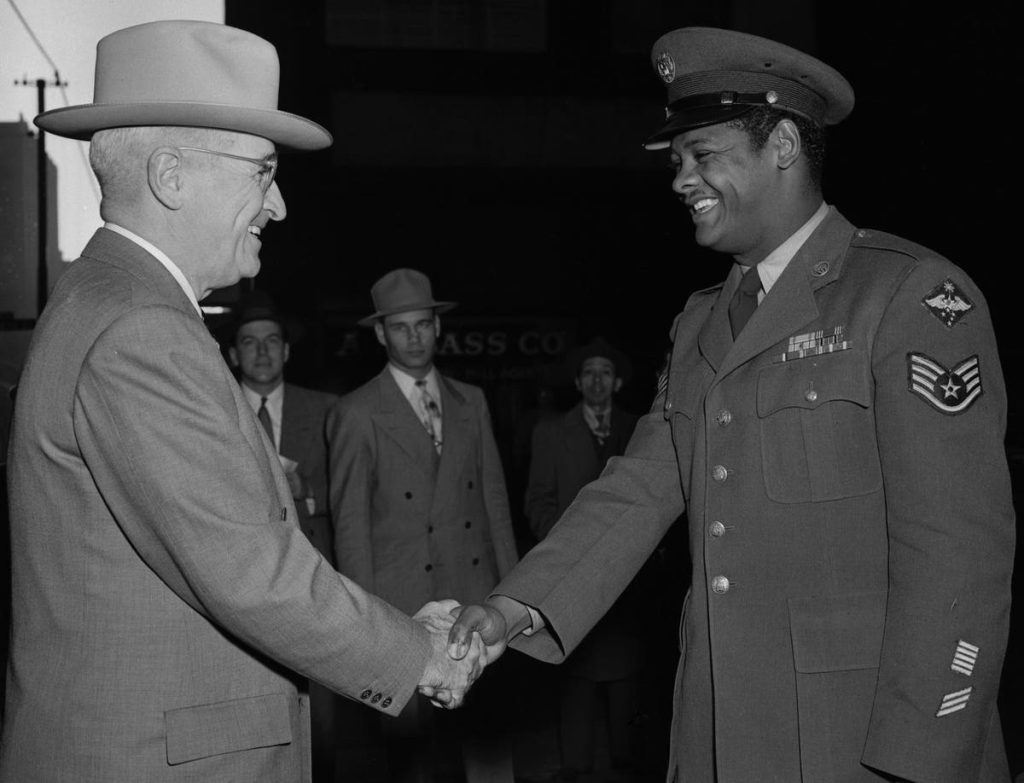The 75th anniversary of President Harry Truman’s decision to desegregate the U.S. military helps put today’s discourse on the future of diversity, equity and inclusion practices into remarkable perspective.
On July 26, 1948, President Truman signed Executive Order 9981 which established the “President’s Committee on Equality of Treatment and Opportunity in the Armed Services.” The essence of the order was to mandate the desegregation of the military.
“It is hereby declared to be the policy of the President that there shall be equality of treatment and opportunity for all persons in the armed services without regard to race, color, religion or national origin. This policy shall be put into effect as rapidly as possible, having due regard to the time required to effectuate any necessary changes without impairing efficiency or morale.”
It may be shocking for many today to learn that 85 years after the Emancipation Proclamation, the U.S. government continued to tolerate elements of racial segregation. It may be particularly shocking to realize that such segregation extended to the armed forces, during the greatest military challenge in U.S. history — World War II.
Indeed, racial segregation was an accepted practice in all branches of the armed forces during that conflict. It was grounded in the stupefying belief that Black soldiers, airmen and sailors were less capable than their white counterparts. This indignity was compounded by the frequent practice of assigning white officers — often from the South — to command Black troops.
Many Black units were often relegated to menial service and supply roles, not being trusted to serve in the forward areas. But other units served in action and with great distinction: in the Air Corps over Europe; with General Patton’s famous Third Army; and in the crucial “island hopping” invasions in the Pacific. Indeed, seaman Dorie Miller’s Pearl Harbor heroism was recounted in several films.
Yet, amazingly, none of those contributions moved the armed services to end the segregation practices after the war. Indeed, the Marine Corps would not allow Black Marines to become officers until November, 1945.
All of this was deeply concerning to President Truman. Despite his border state heritage, he was committed to nothing short of full desegregation of the armed services, notwithstanding substantial opposition from elements of military leadership and of Congress. And, similar to the Emancipation Proclamation, it took several years before Truman’s desegregation call was completed. In fact, Truman forced the Secretary of the Army into retirement over his resistance to implement the order.
It would be naive to believe that Truman was motivated solely by concerns for social justice. There were significant political considerations associated with the famous 1948 elections (“Dewey Defeats Truman”) that must have come into play. But the point is that he did it, despite any other motivations.
And it would be similarly naive to believe that Truman’s order ended racial discrimination in the military for all times. For example, in the Vietnam War, Black soldiers bore a disproportionately high burden of combat activity and casualties until affirmative action was taken by the Defense Department and, ultimately, by President Nixon to revise the draft process.
This summer it is important to remember Truman’s order as we reflect on the controversy surrounding diversity initiatives following the recent Supreme Court decision on affirmative action. State attorneys general, U.S. senators and the media are weighing in from all sides on matters of The Equal Protection Clause and the legality of race-based preferences in hiring, promotions, and contracting. Corporate leaders are increasingly caught in a political pincer between threats from rival political factions as to the constitutional basis of their respective DEI practices.
On this anniversary it is helpful to step back and consider the lasting significance of President Truman’s executive order — without regard to who may be right or wrong in the current DEI debate.
As much as it tries, America does not have a spotless record with respect to racial justice. It often takes extraordinary examples of courageous leadership to help the country make the right choices in that regard. We can learn from the examples of Abraham Lincoln with the Emancipation Proclamation, Branch Rickey with Jackie Robinson, and Lyndon Johnson with the Civil Rights Act and Voting Rights Act.
To those who might dismiss these examples as ancient history, the proper response is, “no, they’re not.” For as President Reagan once noted about our American heritage, “If we forget what we did, we won’t know who we are.” And that goes for the good, as well as the bad.
Truman’s executive order is another one of those examples. President Biden called it “a vital step forward for our nation.” It is useful to keep that in mind as leaders work to adjust their DEI practices in accordance with the Supreme Court’s decision and with the threats from politicians. Because business leaders should consider fundamental concepts of fairness and equity as they work to advance the best interests of their organizations.
Read the full article here









